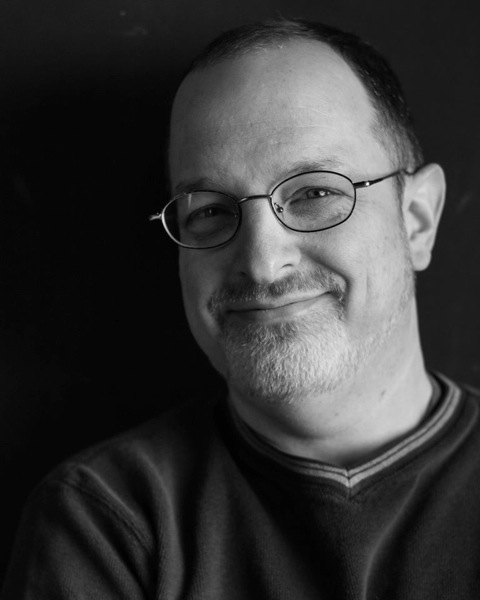What is the relationship between text and tune when you write hymns? In pieces where you've done both, which comes first? What inspires you to compose?
Almost always, I compose a tune to an existing text, even when I write both words and music myself. There have been several times that the tune and words, or at least one or two phrases, will come to me at the same time, but only two times that I can remember writing a tune before having a text to go with it.
Inspiration is an elusive concept to get into words. With a hymn text, I can usually tell from the first time I read it whether or not I'll be able to set it to music. Everything about a text—length of words, length of phrases, length of lines, rhythm, stress, consistency between verses, mood, imagery, pronunciation, vowels and consonants, getting from one word to the next—all of that shows me what a tune will need to do, where the music will serve, support, and enhance. When I serve the text in this way, I hope to compose a tune that sounds as if the words and music were made for each other from the start. If I approach a hymn text with a tune in mind already, I miss all the subtleties that make that text unique.
You've had substantial success with short songs, usually a chorus without stanzas. Could you provide an example of one of those? What's the story behind the piece?
These short songs, which I think of as one-verse hymns, are usually composed either for a specific worship service or with a certain worship function in mind. Often, a scripture text for the next Sunday will have a sentence or two that connects with me, and those words will stay with me until I write a four-part setting, or a single-line melody to be accompanied or sung in canon, or some other format that makes particular sense for the congregation where I'm attending.
One example that comes to mind is "God, we honor you" [ABUNDANT BLESSINGS]. I wrote the text and tune (as usual, the words came first) specifically to sing during the gathering of the offering. The text, rather than coming directly from scripture, grew out of the act of giving. Also, I'm always glad for a chance to use the word "alleluia."
Where/how did you learn the craft of composing? Who were your examples and mentors?
Music has been around me all my life. When I was growing up, my family sang a lot -- around the table before meals, in the evenings before bedtime. My father, Philip Clemens, taught music at Goshen College, and he composed a variety of pieces: hymns, choral works, organ solos, jazz band arrangements. We attended Mennonite churches, where I heard four-part singing. We listened to a lot of music at home, a wide variety including Beethoven, the Beatles, the Modern Jazz Quartet, Herb Alpert & the Tijuana Brass. Hearing so many different styles contributes a lot to what I'm able to use in my own compositions. I studied piano, violin, and organ, and I play a number of other instruments; every experience has something to offer.
Besides my father, another mentor (for music, and for life) is the composer, conductor, and teacher Alice Parker. She has taught me many things, especially how to listen to where a tune wants to go, and to keep things simple—I hope I never stop learning those things.

